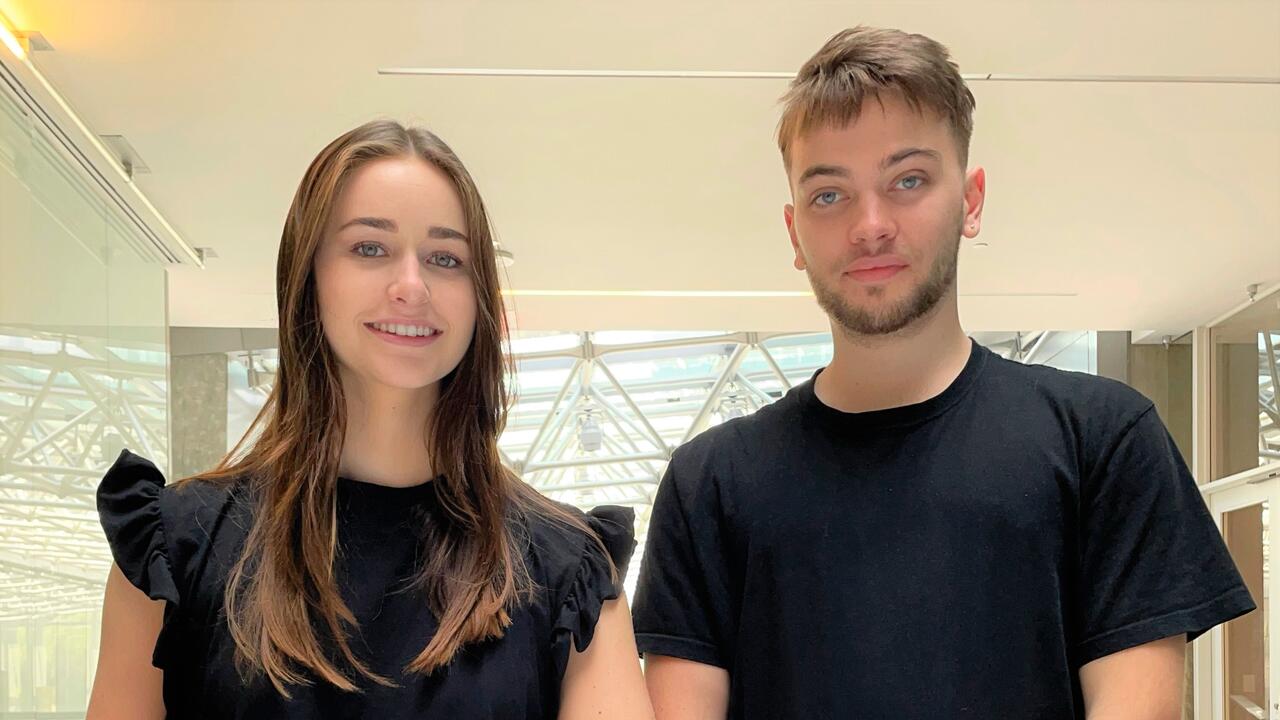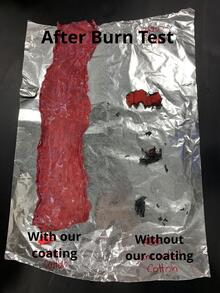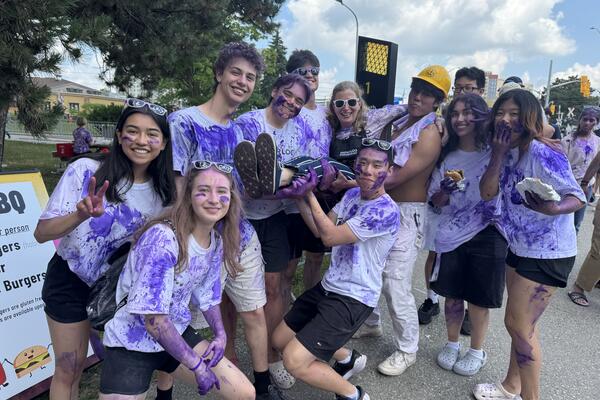
Fighting fire with seaweed
Student startup impresses Dyson contest judges with its non-toxic, flame-retardant coating

Student startup impresses Dyson contest judges with its non-toxic, flame-retardant coating
By Brian Caldwell Faculty of EngineeringTwo recent Waterloo Engineering graduates were named national finalists in a prestigious design contest this week for an idea that began taking shape in a first-year class.
Anneke van Heuven (BASc ’21) and Elias Trouyet (BASc ’21) were just starting the nanotechnology engineering program when they learned that the chemicals in most existing flame retardant materials can cause long-term health effects including cancer.
Five years later, the safe, non-toxic alternative they went on to develop with classmates Tessah Costello and Abby Bull as their Capstone Design project earned them one of two runner-up spots for Canada in the 2021 James Dyson Award competition.
Their startup company, AlgoBio, now moves on to the international stage of the annual showcase for student inventors, with 20 global finalists to be announced in mid-October from an initial pool of more than 2,000 entries from 28 countries.
Extensive research on the health and environmental impacts of chemicals used to prevent consumer and industrial products from burning led van Heuven and Trouyet to seaweed, which has natural flame-retardant qualities.
They combined a biopolymer made from seaweed with embedded nanoparticles to develop two non-toxic, environmentally friendly coating formulations that easily exceed industry requirements.
"When we first tested our product and saw that it worked so well, there was a bit of disbelief," said Trouyet, chief technology officer of the company. "I was telling myself there's no way it worked out so well."

Cotton coated with a flame-retardant formulation (left) is intact after exposure to fire, while untreated fabric is destroyed.
With a basic prototype and testing to prove it works, van Heuven, the chief executive officer, and Trouyet are now consulting potential customers and considering modifications to make an additive, in addition to a coating, for the plastic and rubber industries.
"I always liked the idea of starting my own company because I enjoyed creative and innovative projects," van Heuven said. "Part of the reason I chose nanotechnology engineering was because of the entrepreneurship opportunity, but I wanted to be realistic and I only chose to pursue this path once I knew that our technology worked and there was market opportunity."
The partners are optimistic they are entering the market at an opportune time given increasing government and regulatory attention to the dangers of toxic flame retardants, and the urgent worldwide threats posed by forest fires and climate change.
Teams from Waterloo Engineering have a long track record of success in the Dyson competition, which was launched by the well-known inventor of the bagless vacuum cleaner to challenge university students to develop innovative products that solve tangible problems.
Last year, five 2020 nanotechnology engineering graduates – Holden Beggs, Alisha Bhanji, Ishan Mishra, Fernando Pena and Zhenle Cao – finished in the top four internationally with startup Scope Photonics and its smartphone camera zoom technology.

Read more
Dr. Mary Wells recognized for decades of leadership in higher education

Read more
Here are the people and events behind some of this year’s most compelling Waterloo stories

Read more
Waterloo Engineering community honours impact and innovation at annual awards dinner
The University of Waterloo acknowledges that much of our work takes place on the traditional territory of the Neutral, Anishinaabeg, and Haudenosaunee peoples. Our main campus is situated on the Haldimand Tract, the land granted to the Six Nations that includes six miles on each side of the Grand River. Our active work toward reconciliation takes place across our campuses through research, learning, teaching, and community building, and is co-ordinated within the Office of Indigenous Relations.